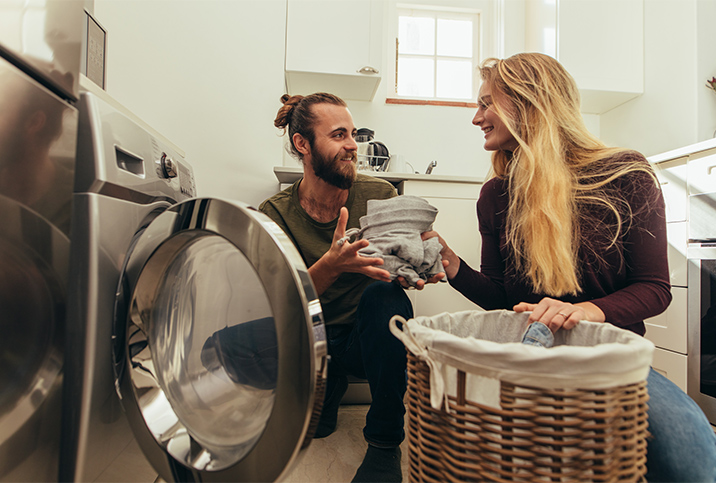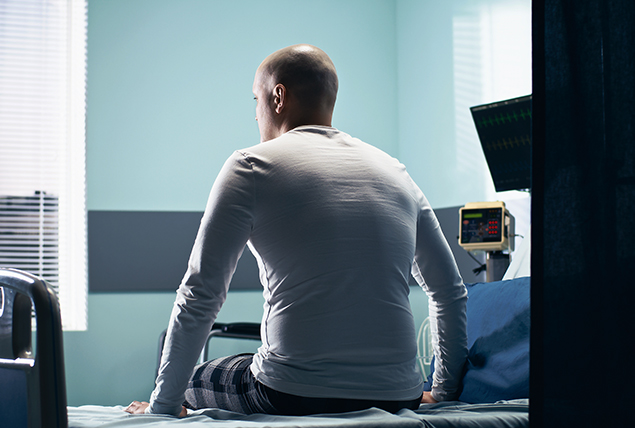Study Indicates HPV Vaccine Can Prevent HPV-Related Cancers in Men

Key Points
- HPV-related cancers affect tens of thousands of people in the United States each year.
- HPV vaccines prevent cancer in men as well as women, indicated a 2024 study.
- The HPV vaccine uptake rate is lower in males than females, but more men are getting the shot.
Most sexually active females and males in the United States—regardless of their gender identity, race or sexual orientation—will at some point become infected with the human papillomavirus (HPV).
About 50 percent of those infections will be a high-risk HPV type that can cause cancers of the anus, cervix, penis, throat, vagina and vulva.
The World Health Organization estimated in 2019 that, globally, there were 620,000 new HPV-caused cancer cases in women and 70,000 new cases in men.
Given the lesser amount of cancers attributed to men, there has been less emphasis on males taking preventative measures such as the HPV vaccine even though it has been highly effective at preventing cancer from happening. Since the vaccine's emergence, cervical cancer rates have dropped drastically.
However, since a recent study suggests the HPV vaccine is even more effective at protecting men from HPV-related cancers of the throat and mouth than women, males will likely be encouraged to get the HPV shot, too.
Does the HPV vaccine prevent cancer in men?
The risks of HPV can't be overstated. As well as the cancers listed earlier, up to 70 percent of head and neck cancers, according to the Centers for Disease Control and Prevention (CDC)—which affect more than twice as many men as women—are also attributable to HPV infection.
Fortunately, HPV vaccines work to prevent more than 90 percent of all HPV-related cancers, according to the CDC.
Researchers examined data from 3.4 million people from a large healthcare database, for the recent retrospective cohort study. Half of the participants had received HPV vaccines at least five years prior, while half were unvaccinated.
The results showed that men who'd had the HPV shots were 56 percent less likely to develop any HPV-related cancers than their unvaccinated counterparts. Vaccines cut women's risk by 36 percent.
Researchers noted that these numbers likely understate the vaccine's efficacy as many study participants likely received the vaccines later than recommended. They also noted that because these cancers develop slowly over many years, it may be a while before research can accurately demonstrate the vaccine's efficacy.
"We think the maximum benefit from the vaccine will actually happen in the next two or three decades," study co-author Joseph Curry, M.D., a head and neck surgeon at the Sidney Kimmel Cancer Center, located in the Thomas Jefferson University Hospital in Philadelphia, Pennsylvania, told the Associated Press (AP).
"What we're showing here is an early wave of effect," Curry said.
Recommended
- I Knew Nothing About HPV—Then It Gave Me Cancer: I never thought I would have cancer at age 33, especially not cancer caused by an STI.
- How to Ask a Partner to Get an STD Test: Getting tested is easy, and talking to your partner about STI testing should be easy, too.
- 10 Things We Bet You Didn't Know About HPV: …and maybe a few things you did know about human papillomavirus, an extremely common STI.
How old should I be to get vaccinated?
The American Society of Clinical Oncology released the study results in May 2024 and discussed the findings at its annual meeting in June. The study has yet to appear in a peer-reviewed journal.
HPV is a common sexually transmitted infection (STI) that affects about 79 million Americans—estimated to be 80 percent of sexually active people, according to the U.S. Department of Health and Human Services Office on Women's Health.
There's no routine test to screen for HPV in men, but doctors can diagnose HPV by examining symptoms, such as genital warts. Some doctors also encourage men who have receptive anal sex to have anal Pap smears to check for anal cancer or precancerous cells.
Not all the 100-plus types of HPV are symptomatic. Just 12 types of HPV cause cancer.
When the HPV vaccine was first approved in 2006, it was marketed to young women to prevent high-risk strains that can cause cervical cancer. More recent iterations of the vaccine can also protect against other types of HPV, and doctors recommend the HPV vaccine for boys and girls.
Following the recommended HPV schedule, children get their first shot at age 11 or 12 to ensure they're fully protected before coming into contact with the virus. However, unvaccinated adults can start the vaccination series until age 26.
Clinicians don't typically recommend getting the HPV vaccine after age 26. However, people who've never been diagnosed with HPV or have multiple sexual partners may opt to get a jab until age 45.
Is the HPV vaccine lowering cervical cancer rates in women?
There is a lot of research indicating that HPV vaccines reduce cervical cancer rates significantly.
Since 2006, the number of infections from the types of HPV that cause cancer and genital warts has decreased by 88 percent among teen girls and 81 percent among young adult women, according to the CDC.
HPV shots have also reduced the number of cases of precancers of the cervix in young women.
A large, 11-year study of nearly 1.7 million women found that the HPV vaccine was especially effective for girls before age 17, indicated a 2020 report. Women who had received the shot at 16 or younger were 90 percent less likely to develop cervical cancer during the study period compared to those who had not been vaccinated.
One study evaluated hundreds of thousands of people vaccinated for HPV found zero cases of cervical cancer in people who received the shot at age 12 or 13, suggested a 2024 report from Scotland.
Are more men getting the HPV vaccine these days?
HPV vaccination rates in men are on the rise, according to a second separate study released by The American Society of Clinical Oncology.
For the study, researchers looked at data from a large government survey spanning 2011 to 2020 to determine how many preteens, teens and young adults had received the HPV vaccine.
The data indicated that, over the study period, the uptake rate increased from 38 percent to 49 percent in females and eight percent to 36 percent among males.
The bottom line
HPV-related cancers are highly preventable. The HPV vaccine works best when given at age 11 or 12, before sexual activity takes place, but it is possible to receive the shots later in life. Using protection during sex can also help prevent infection.
Talk to your healthcare provider if you have questions about vaccination, screening or HPV symptoms.


















